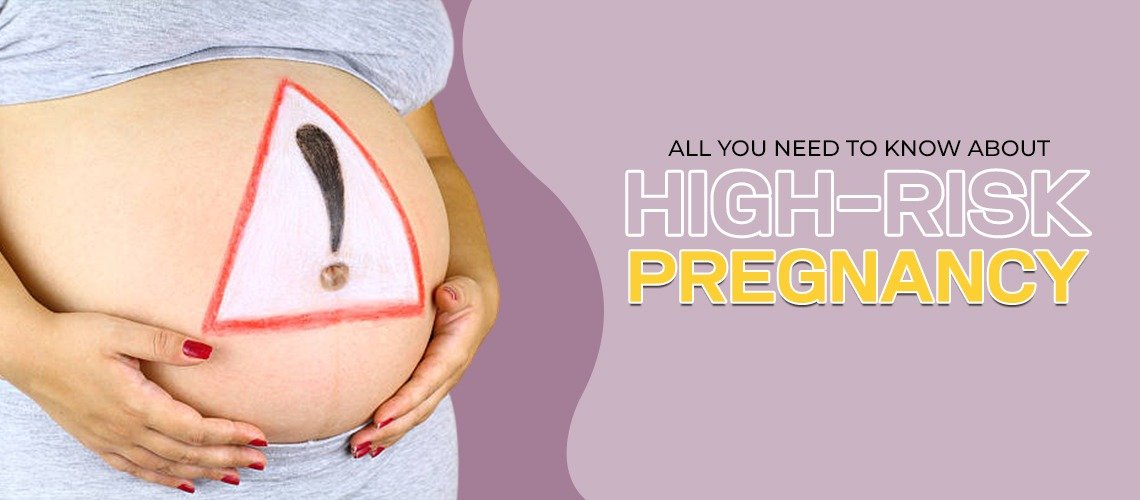Higher Risk Pregnancy
A high-risk pregnancy pertains to a gestational situation where there is an elevated likelihood of complications occurring either before, during, or after the process of childbirth, thereby potentially affecting the health and well-being of either the mother, the baby, or both individuals involved in the pregnancy journey.
At times, a pregnancy might be classified as high risk due to pre-existing medical conditions that were present before conception. Additionally, there is the possibility that certain medical conditions may manifest during the course of pregnancy, subsequently increasing the likelihood of encountering complications. These circumstances heighten the risk of experiencing various issues that could impact the health and welfare of either the mother, the baby, or both during the pregnancy and childbirth process.
A woman’s pregnancy may fall into the category of high risk based on various factors:
– Age: Women aged 17 or younger, as well as 35 and older, are at a heightened risk for high-risk pregnancies.
– Pre-existing weight conditions: Being either underweight or overweight before pregnancy contributes to the classification of a pregnancy as high risk.
– Multiple births: Expecting twins, triplets, or more increases the likelihood of a high-risk pregnancy.
– Health conditions: Conditions like high blood pressure, diabetes, depression, or other medical issues can elevate the risk.
– Previous pregnancy complications: Experiencing issues such as premature labor or giving birth to a child with a genetic disorder or birth defect can lead to a subsequent pregnancy being classified as high risk.
– Unhealthy behaviors: Engaging in activities like smoking, using illicit drugs, or consuming alcohol during pregnancy poses significant health risks for both the mother and the baby, complicating the pregnancy journey.
Tips to avoid Higher Risk Pregnancy
If your pregnancy is classified as high risk, collaborating closely with your healthcare provider or care team is crucial to address any manageable health issues effectively. Additionally, adhering to essential guidelines for a healthy pregnancy is paramount.
Early and consistent prenatal care is essential, so ensure regular visits to your doctor throughout your pregnancy.
Maintain a balanced diet rich in fruits, vegetables, whole grains, and lean proteins, as recommended by your healthcare provider. Exercise, if approved by your doctor, can also contribute to your overall well-being during pregnancy.
Strive to gain an appropriate amount of weight, avoiding excessive or insufficient weight gain.
Take preventive measures to safeguard yourself against infections, including Zika, by practicing good hygiene, avoiding consumption of raw meats, fish, or unpasteurized dairy products, and staying up to date on any recommended vaccinations.
Minimize the problem of sexually transmitted infections by abstaining from unprotected sex with partners whose sexual history is unknown or who may have an STD, as such infections can potentially harm the baby if transmitted during pregnancy.
Implement strategies to manage and reduce stress levels throughout your pregnancy, as excessive stress can have adverse effects on both maternal and fetal health.

